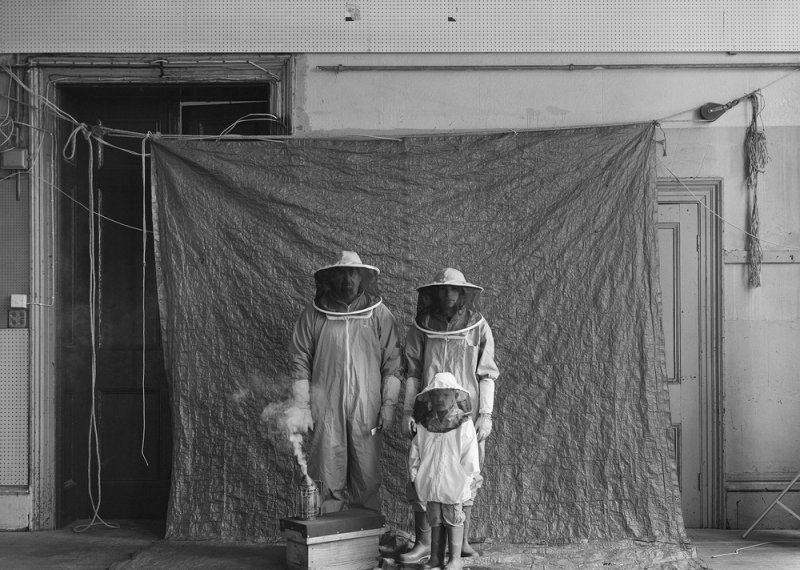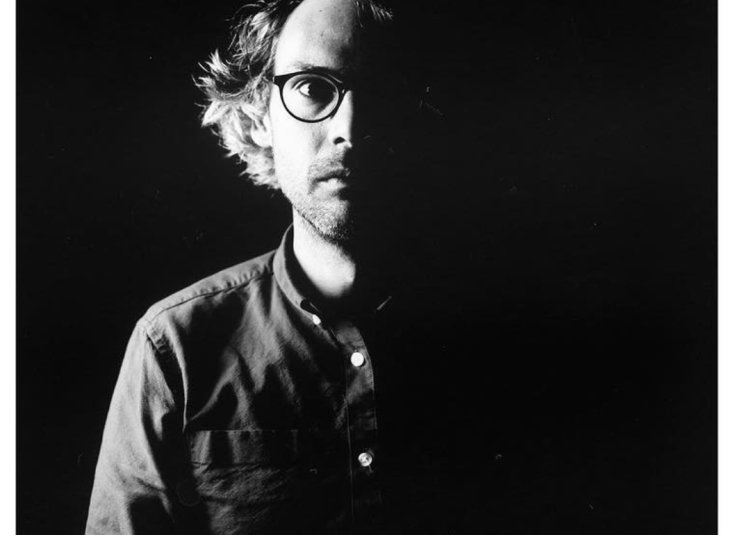Anthology of Rural Life

The Anthology of Rural Life is a photographic project that aims to produce an archive of material to document continuities and shifts in patterns of contemporary rural life.
Project details
| Project lead | Oliver Udy |
|---|---|
| Start date | 2012 |
| End date | Ongoing |
| Centre alignment | Centre for Heritage, Culture & Society |
The Anthology of Rural Life (A.R.L) is a collaborative research project that uses photography to blend visual data with social and cultural analysis.
Through engagement with both individuals and social groups the project records and reflects elements of shifting European economic, social and cultural climates within diverse rural contexts.
Overarching these considerations are the challenges presented by environmental concerns and a Europe framed between re-emerging nationalisms and the hyper-connectivity made possible through economic globalisation and advancing communicational technologies.
The outputs of the project are varied, and include publications, exhibitions and academic presentations.
The project responds to the challenge of capturing the complexity of rural life in contemporary Europe, particularly in the face of socio-economic transformations, environmental concerns, and the effects of globalisation. It aims to reflect the changing landscapes, cultures, and traditions of rural areas while avoiding romanticised or oversimplified representations.
The central research question is framed around understanding how rural life in contemporary Europe can be critically examined and represented through photography, in particular, the following questions:
- How do visual methodologies capture the changing socio-economic, environmental, and cultural realities of rural Europe?
- How do global forces such as migration, technology, and environmental crises affect rural communities and landscapes, and how can these changes be documented photographically?
The project charts the socio-cultural transformations occurring in rural Europe due to economic globalisation, environmental crises, and technological advancements. Specifically:
- The interplay between local and global influences on rural traditions: how traditional practices and landscapes are reshaped by external forces.
- The changing socio-economic structures of rural areas: how modern agricultural practices, tourism, and sustainability initiatives are influencing rural livelihoods.
- Rural identity and visual representation: how rural life is visually constructed and perceived in both academic and public domains.
The project intends to provide new insights into the representation and understanding of rural life within the academic fields of rural sociology, visual culture studies, and environmental anthropology, by using photography as both an artistic and archival practice.
This falls within the academic framework of multi-sited ethnography (studying rural life across various European regions) and photographic surveys that explore social and cultural transformations, as well as the critical geography of rural spaces.
Questions of the rural are present across multiple areas of academic research, encompassing disciplines such as sociology, anthropology, geography, environmental studies, and visual culture. The study of rural life, especially in contemporary Europe, involves engaging with a variety of issues related to the socio-economic transformations of rural communities, the changing landscapes shaped by agricultural practices, and the impact of globalization on local traditions. The rural environment is not a static or homogeneous space; rather, it is a complex and dynamic social landscape influenced by global economic policies, migration patterns, technological advancements, and environmental challenges, including climate change.
The Anthology of Rural Life (A.R.L) offers a unique opportunity to explore these issues visually, providing a platform to examine how rural spaces are experienced, constructed, and imagined. The images produced across several different studies can serve as tools to highlight the contrast between traditional rural practices and the modern influences reshaping them.
The interplay between rural space and contemporary issues—such as sustainability, tourism, and the preservation of cultural heritage further complicates how we understand and represent rural life today. The A.R.L therefore becomes an endeavour that intersects with debates on modernity, heritage, and the evolving meanings of 'the rural' in a rapidly urbanising and globalised world.
In this context, the photography produced transcends its role as documentation and becomes an active method of inquiry, allowing researchers and the public to engage with the lived realities of rural communities while also reflecting on the broader sociopolitical forces at play. By framing rural Europe in this way, A.R.L can critically contribute to discourses on rural identity, belonging, and resilience in the face of contemporary challenges.
The ARL project has developed as a photographic record, but has evolved to include inputs from multi-disciplinary practitioners – to use social, cultural, and visual analysis to explore narratives within contemporary rural life.
The project has involves and welcomes the participation of experts on rural economies, regional governance, social scientists as well as writers on art and photography. ARL aims to find a place within a breadth of contexts (academic symposiums, public exhibition, historical and social archives), along with a diversity in output that allows the project to be disseminated to a wide audience.
Most recently the project was commissioned to produce a new study of the Lizard Peninsula by Kestle Barton Gallery, which in turn forms part of an ongoing relationship with Kresen Kernow (the collection of Archives in Cornwall) who hold the A.R.L archive.
The research methodology can be framed as follows:
Documentary Photography and Fieldwork
The fieldwork allows us to immerse ourselves in a specific community or setting to understand social practices, cultural norms, and everyday life.
A mix of pre-planned and ad-hoc meetings form an open-ended, flexible approach, which allows us to engage with participants organically, adapting to the social dynamics encountered on-site.
Visual Research Methods
The use of visual documentary as a core methodology serves as a medium for understanding and conveying the cultural and environmental context of the rural areas being studied.
Participatory and Contextual Research
The approach also emphasises participant engagement, where we are not only observing but also interacting with the community. This can lead to collaborative insights, with the researchers and participants co-constructing knowledge about rural life.
Project team

Oliver Udy
Head of Photography
Oliver Udy is a photographer, publisher and general facilitator of things.Udy joined Falmouth Univer...
Additional staff members:
- Colin Robins, Lecturer in Photography, University of Plymouth
Partners
- Plymouth University
- Kresen Kernow
- Kestle Barton
Outputs & outcomes
Falmouth University Research Repository (FURR)
- https://repository.falmouth.ac.uk/cgi/users/home?screen=EPrint%3A%3AView&eprintid=4497
- https://repository.falmouth.ac.uk/cgi/users/home?screen=EPrint%3A%3AView&eprintid=4999
- https://repository.falmouth.ac.uk/cgi/users/home?screen=EPrint%3A%3AView&eprintid=5599
- https://repository.falmouth.ac.uk/cgi/users/home?screen=EPrint%3A%3AView&eprintid=5693
- https://repository.falmouth.ac.uk/cgi/users/home?screen=EPrint%3A%3AView&eprintid=5692
Impact & recognition
The project can form the basis for a dialogue between various stakeholders related to life in rural areas. Most notably, those that would build policy around the countryside, and those that live and work in these places.
A recent example of this can be seen in the following symposium:
Food Systems and Farming -
A symposium that drew together speakers from a range of perspectives to discuss the future of food production.